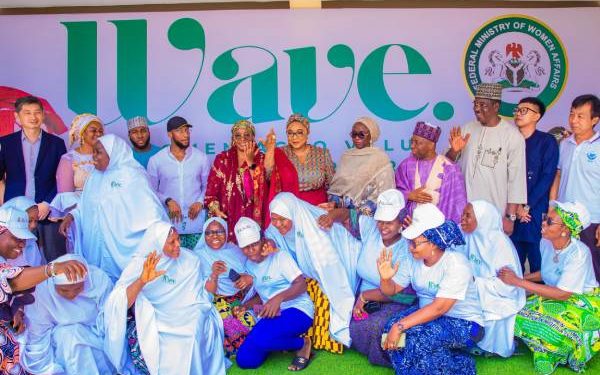The Federal Ministry of Women Affairs has partnered with Kudimata Nigeria Limited to launch the EmpowerHER Financial Literacy Programme, a nationwide initiative designed to enhance the financial, digital, and entrepreneurial capacity of Nigerian women.
So far, no fewer than 250,000 women have registered for the program, which aims to reach 10 million beneficiaries by 2030 through training, mentorship, and access to financial inclusion tools.
Speaking at the official launch in Abuja, the Minister of Women Affairs, Imaan Sulaiman-Ibrahim, described the initiative as a cornerstone of the Federal Government’s drive to promote women’s economic empowerment and inclusive development.
“Empowerment must begin with understanding. Financial literacy gives women the confidence to take control of their resources, opportunities, and future,” Sulaiman-Ibrahim said.
She added that the programme aligns with President Bola Ahmed Tinubu’s Renewed Hope Agenda, noting that financial and digital literacy would now serve as the foundation of all empowerment initiatives under the ministry.
The minister reaffirmed the government’s commitment to building a sustainable and transparent empowerment framework that ensures measurable social impact across all 774 local government areas.
Also speaking, Founder of Kudimata Nigeria Limited, Kathleen Erhimu, said EmpowerHER represents a national movement to democratise financial knowledge and economic participation among women.
“Every Nigerian woman, whether behind a desk, in a market, on a farm, or leading an enterprise, deserves the knowledge, access, and confidence to grow wealth and shape her destiny,” she said.
Erhimu noted that Kudimata would leverage digital learning platforms and community-based outreach to ensure equitable access to training, especially for women in rural and underserved areas.
The EmpowerHER Financial Literacy Program will provide participants with step-by-step guidance on savings, investment, business management, and digital finance, equipping them to build resilient enterprises and contribute to national growth.
By 2030, the initiative is expected to create a stronger pipeline of financially independent women entrepreneurs, positioning Nigeria as a leading example of inclusive economic empowerment in Africa.










